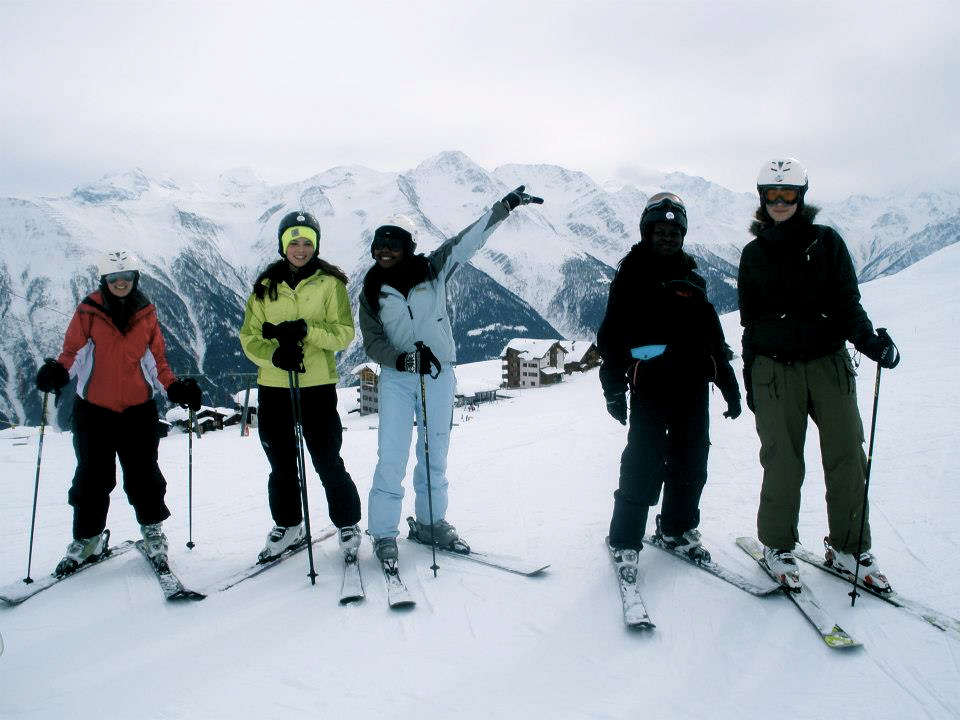ISEP student Madeleine K. is a part of ISEP Voices Spring 2016. She is a plant biology major from University of Vermont, and is currently studying abroad at Universität Bern in Switzerland.

Photo by ISEP student Chelsea C. who studied abroad in Switzerland.
Swiss German. Berndeutsch. Bärndütsch.
If you took the German language, smoothed it out, and added a twist of Arabic and a pinch of Russian, you would get the local dialect that they speak here in Switzerland.
Frankly, the first time I heard it, I was extremely overwhelmed. I couldn’t help but giggle at some of the sillier words, and felt weirdly distant from the uncomfortably unfamiliar sounds. Listen for yourself: Mani Matter: Dr Sidi Abdel Assar vo El Hama.
As a language, it’s extremely unique, and is so distinct from Higher German that most Germans don’t understand Swiss-German. The vocabulary, pronunciation, word order and grammar are all different. It’s mysterious. And the more I listen to it, the more beautiful it gets.

Photo by ISEP student Allison B. who visited Switzerland while she studied abroad.
The language barrier has certainly been a struggle. Most educated Swiss people speak English, but many young cashiers have a limited understanding of English and we have a hard time communicating. I can get by with saying “hello” and “thank you” in Swiss German, and oftentimes I can slip by unnoticed (an American in disguise). Every now and then people ask me questions and I either smile and nod, or awkwardly interject that I “no sprechen sie deutsch”. When I went grocery shopping the other day, I chose the smiling and nodding approach with the cashier because I was tired and didn’t want to get caught up in the inevitably awkward language tango. She ended up stamping my receipt with a large smiley face stamp and handing me a sticker of a sparkly squirrel-like creature. I still have no idea what I possibly could have agreed to to elicit that kind of reward, but from now on I will be doing a lot more smiling and nodding!
This problem has followed me on my travels around Europe as well. Misunderstandings with shopkeepers in France and train conductors in Italy are a daily occurrence. Some of them can be quite embarrassing (especially if my ignorance of the native language particularly annoys the other party). I’ve come close to missing trains and planes because of my inability to read signs or understand where I’m supposed to go. I’ve learned to just grin and bear it to get past the discomfort.

Photo by ISEP student Chelsea C. who studied abroad in Switzerland.
While having a language barrier can be confusing, it is also extremely delightful and has made the interactions I’ve had with all of the international students I’ve met here extremely refreshing rather than frustrating. When English isn’t someone’s first language, you stop worrying about word choice. You don’t think about the double meanings behind their words. You don’t worry about their tone of voice or inflection. When English isn’t someone’s first language, you look past the method of communication and look solely at the meaning.
It was only when I ended up in León, Spain, with a group of Japanese students who only know Spanish and Japanese that I realized how little the language barrier mattered. As we danced, laughed, ate tapas and pantomimed stories to one another, I understood that human connection and friendship transcends verbal communication. Love for our friends is more than just love for the words they say.
Are you ready for your own adventure? See all of your study abroad options on the ISEP website.
Want to see more from our ISEP bloggers? Learn more about our ISEP Voices Spring 2016 group.
Like this Story? Also like us on Facebook.